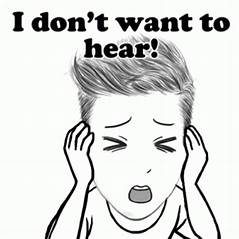‘Don’t tell me to man up’: What men don’t want to hear in 2025
This piece delves into why such sentiments are damaging, what fathers wish society knew, and how to raise healthy, emotionally aware boys in today's environment.
1. Why 'Don't tell me to man up' is more important than ever.
The phrase 'Don't tell me to man up!' is a protest against toxic masculinity. Telling a guy to "man up" suggests that he must suppress his feelings, be mute about his problems, and be tough at all times. But by 2025, males are increasingly resisting this programming.Mental health data reveal that:
- In India, one in every four males aged 30 to 50 reports symptoms of depression or anxiety, but fewer than 30% seek treatment.
- Suicide is still one of the major causes of mortality for males under 45 globally.
Instead of suppressing their feelings, today's dads, fitness fanatics, and professionals in their 30s and 40s are embracing therapy, writing, and open conversations—not just for themselves but also for their children.
2. The new concept of masculinity: from silent strength to emotional courage.
- In 2025, guys do not want to hear the phrase "stop crying like a girl."
- "You're being too sensitive."
- "Real men don't talk about their feelings."
- "You're the man of the house—act like it."
Just as physical health requires frequent exercise, emotional fitness necessitates regular self-reflection, communication, and support. This moves benefits not only males, but also families and children.
3. Men's mental health: Breaking the silence for future generations.
In 2025, guys are finally talking about stress, burnout, trauma, and parental strain. But the stigma persists. That's why 'Don't tell me to man up' is more than simply a slogan; it's a mental health campaign.Many men in their 30s and 40s are juggling employment, kids, relationships, and cultural expectations to "have it all together." When someone says, "Man up," it shuts off open discourse.
Recent research show:
- 70% of males aged 30-49 report that they do not have a close buddy in whom they can confide.
- Fathers who repress their emotions are more likely to produce boys who do the same, creating a vicious cycle.
Fathers who open up about stress, admit when they're struggling, and seek assistance create healthy children who perceive vulnerability as strength.
4. Fitness and fatherhood: The balance that modern men are attempting to achieve
When you encourage a man who is fatigued from work and childcare to "man up," you dismiss his everyday hardships. The statement 'Don't tell me to man up' acknowledges that men are humans, not machines.
In 2025, males do not want to hear,
- "You're the dad—you don't need paternity leave."
- "Why are you so tired?" "You aren't the one breastfeeding."
- "Your fitness goals are selfish."
Instead, what males should hear is:
- "It's okay to take a break."
- "You're doing a great job."
- "Your emotional well-being matters."
5. How to develop emotionally capable guys in 2025?
Instead of criticizing males for sobbing, discussing their feelings, or displaying anxiety, parents should educate that:
- Emotions are normal and valid.
- Asking for aid demonstrates strength.
- Sensitivity and strength are not mutually exclusive; rather, they work together.
We need to:
- Encourage open family talks.
- Celebrate emotional honesty.
- Reject labels such as "crybaby" and "weak."
Conclusion: The future is human and not hard.
So, in 2025, guys don't want to hear clichés that overlook their inner world. They seek encouragement rather than judgement. Understanding, not ridicule. Support, not quiet.
And the greatest part? By accepting this transformation, these fathers are raising emotionally robust, healthy children who will pass on a more balanced, caring worldview.
Bonus Tips: What to say instead of “man up”
Here are a few powerful phrases that uplift rather than shame:
✅ “I’m here if you want to talk.”
✅ “It’s okay to feel this way.”
✅ “You don’t have to go through this alone.”
✅ “Let’s take a break together.”
✅ “You’re doing your best, and that’s enough.”
These simple words can build emotional bridges—between partners, friends, and parents and children. Because in 2025, masculinity is finally becoming more human.










Comments
Post a Comment